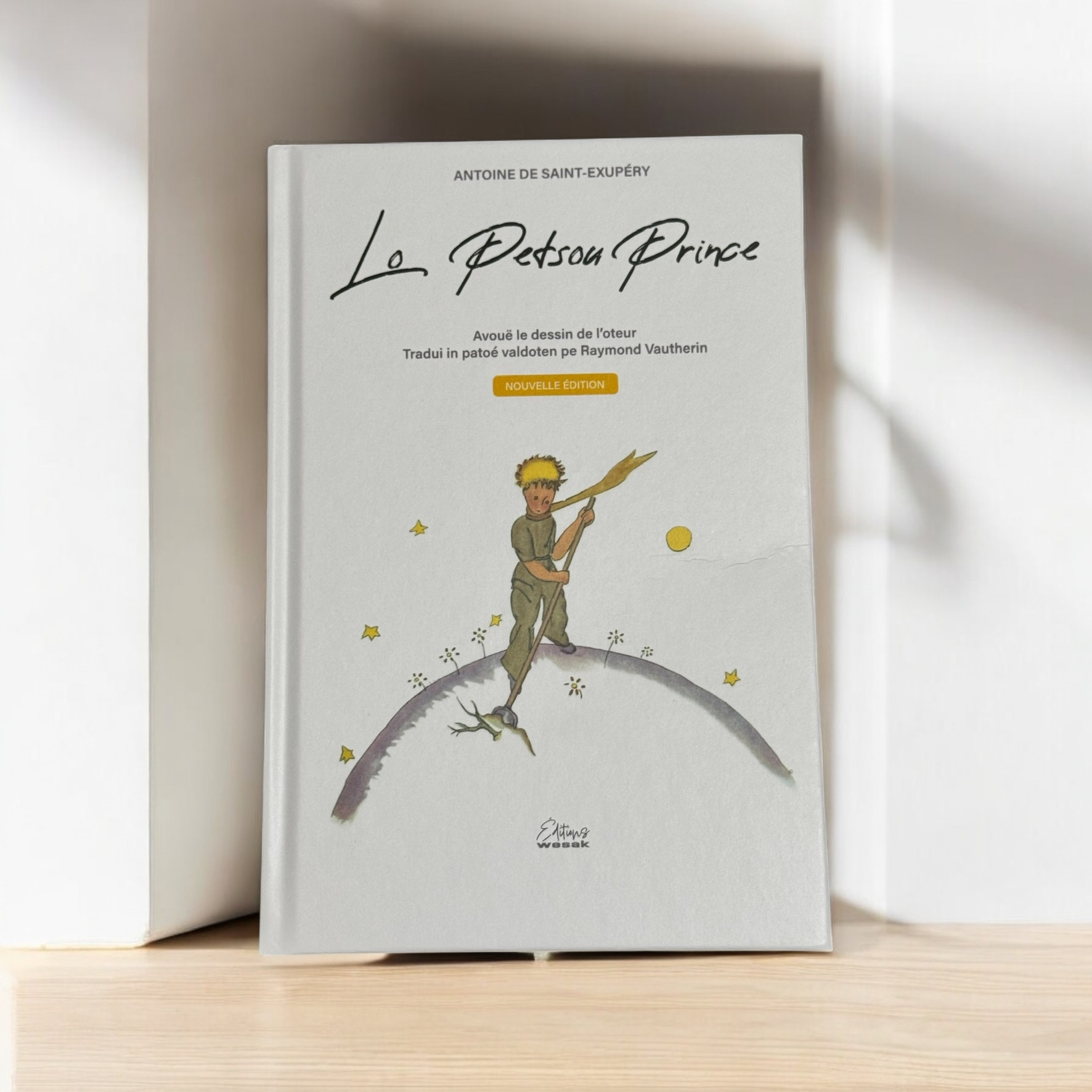
Le Petsou Prince — in Valdotain.
The Valdôtain language, locally known as patois valdôtain, is a proud and resilient branch of the Arpitan (Franco-Provençal) language family, spoken in the Aosta Valley (Vallée d’Aoste)—a breathtaking alpine region in northwestern Italy nestled between France and Switzerland. Though officially bilingual in Italian and French, the people of this mountainous enclave have, for centuries, maintained their own distinct linguistic identity through Valdôtain, which is neither French nor Italian, but a Gallo-Romance language with roots that predate modern national boundaries. Rich in oral tradition, the dialect reflects a culture shaped by isolation, resilience, and harmony with nature: the sounds of patois were once heard in every alpine pasture, church procession, and family gathering, passed from elders to children not only as a means of speech but as a vessel for songs, proverbs, legends, and rural wisdom.
Linguistically, Valdôtain shares features with other Arpitan varieties spoken in Savoy, Fribourg, and Lyonnais, such as vowel shifts, definite articles like lo, and lexical items distinct from both French and Occitan. Yet, the dialect of Aosta has preserved unique phonetic and syntactic traits that reflect both its historical isolation and centuries of cultural blending. One of the most passionate champions of this heritage was Raymond Vautherin (1935–2018), a poet, playwright, and linguist who not only wrote extensively in his local dialect but also translated major works — most famously The Little Prince (Lo Petsou Prince) — into Valdôtain. His variant, rooted in the Saint-Vincent area, became a cultural reference point for the region, celebrated for its musical cadence, poetic resonance, and clarity.
Vautherin’s efforts elevated Valdôtain from a marginalised “patois” to a respected literary language, encouraging its teaching in schools and its use in theatre, radio, and festivals. His work helped galvanise a broader regional revival that still continues today, with organisations like the Centre d’études francoprovençales preserving dialectal variation and recording oral histories. Culturally, Valdôtain lives on in carnival traditions, rituals like the Batailles de Reines (cow fights), and alpine music, all of which embody a lifestyle rooted in community, landscape, and continuity.


